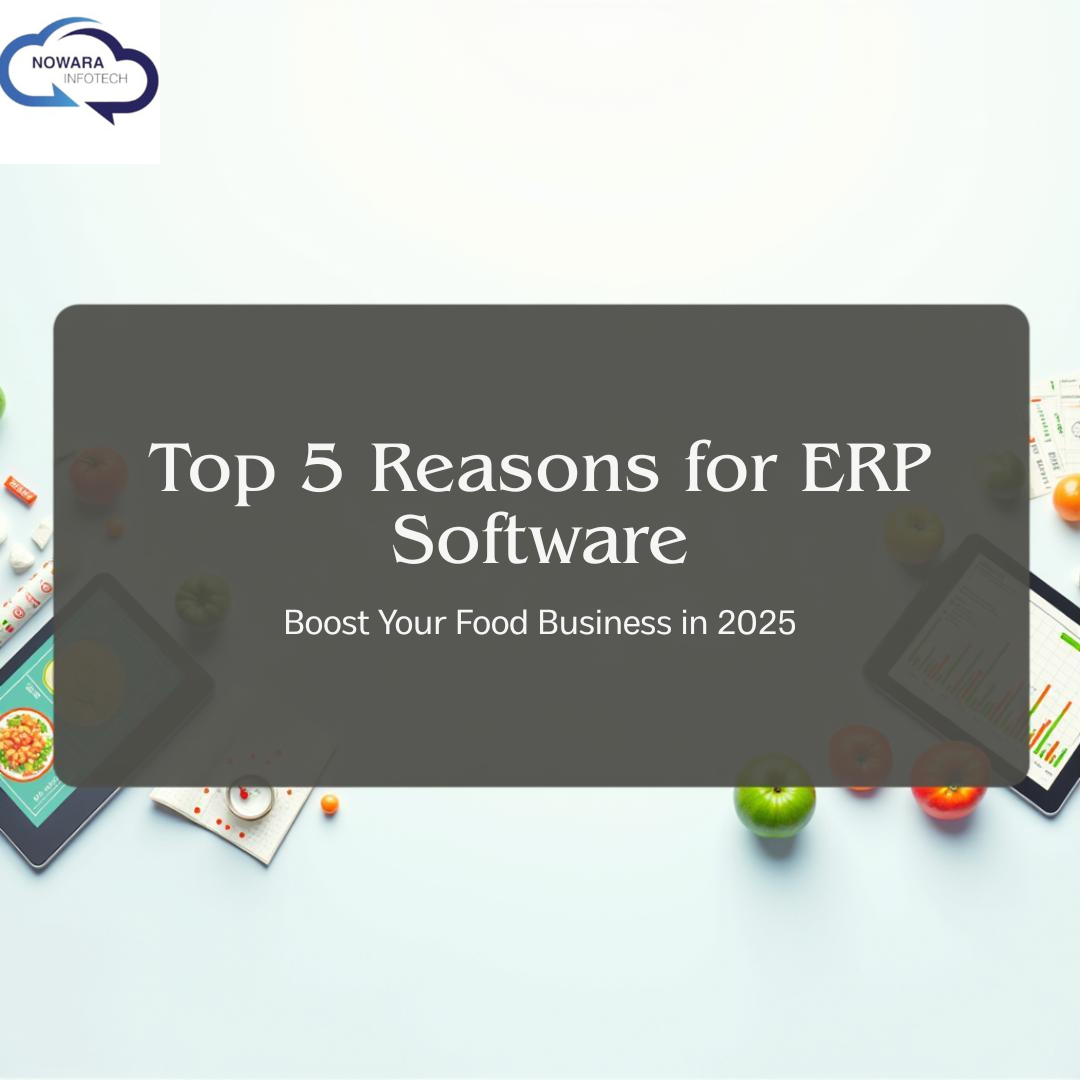In 2025, the food and beverage industry faces a storm of challenges—from evolving consumer preferences and rising raw material costs to increasing government regulations and supply chain volatility. To survive and thrive in such a dynamic environment, food and beverage companies can no longer rely on disconnected systems or spreadsheets. Instead, they need an integrated, intelligent, and adaptable solution: ERP software.
This article outlines the top five reasons food and beverage companies must invest in ERP software in 2025. Whether you're a manufacturer, distributor, or co-packer, this guide will help you understand why ERP is no longer a luxury—but a necessity.
1. Supply Chain Visibility and Agility Are No Longer Optional
The global food supply chain remains fragile. A 2024 McKinsey report noted that nearly 72% of food companies experienced moderate to severe supply disruptions in the past 12 months. Whether it’s sourcing raw materials or managing transportation costs, businesses need real-time data to respond quickly.
An ERP system provides complete supply chain visibility—from raw material sourcing to finished product delivery. Features like demand forecasting, supplier performance tracking, and automated procurement workflows empower companies to pivot quickly when disruptions occur.
Stat to Know: Companies using ERP saw a 20% reduction in procurement costs and 30% faster order processing, according to a 2024 IDC survey.
2. Recipe Management and Batch Tracking Improve Product Consistency
Product consistency is the cornerstone of brand trust in the food and beverage sector. Whether you're a dairy processor or a snack manufacturer, consumers expect every batch to deliver the same quality and taste.
A robust food and beverage ERP enables centralized recipe management with version control, allergen tracking, and ingredient substitutions. It also allows batch-level tracking across the production cycle to ensure traceability and accountability.
ERP software helps avoid costly recalls by making it easier to trace ingredients back to their source instantly—an essential feature as food safety regulations tighten globally.
Example: A bakery chain using ERP reduced product waste by 22% and improved compliance reporting turnaround by 40% after switching from spreadsheets to an automated solution.
3. Regulatory Compliance Is Increasingly Complex
From FDA, FSSAI, to EU food safety regulations, the legal landscape for food production is rapidly evolving. Non-compliance can result in fines, recalls, and irreparable brand damage.
ERP solutions help food companies stay compliant by providing built-in features like:
-
Automated HACCP documentation
-
Expiry date tracking and shelf-life control
-
Real-time audit trails
-
Digitized compliance reporting
These features ensure that companies maintain meticulous records and reduce the manual effort required to prepare for audits.
According to the website Nowara Infotech, ERP software like Microsoft Dynamics is tailored to meet global compliance needs with localized configurations and audit-ready reporting.
4. Inventory Optimization Saves Money and Reduces Waste
Overstocking leads to expired goods, and understocking results in lost sales and delayed deliveries. In 2025, food companies need to walk a tightrope between just-in-time and just-in-case inventory strategies.
With ERP, companies get real-time inventory data across multiple warehouses, enabling:
-
Smart reordering based on lead times and seasonality
-
Automatic FIFO/LIFO handling
-
Expiry and shelf-life control
-
Cold storage and temperature-sensitive product monitoring
These capabilities drive inventory optimization, minimize spoilage, and ensure product freshness.
Data Insight: The Aberdeen Group found that companies using ERP for inventory management had 35% fewer stockouts and 28% lower inventory holding costs compared to non-ERP users.
5. Real-Time Data Insights Enable Smarter Decisions
ERP software offers a unified dashboard where decision-makers can access real-time KPIs across departments—sales, production, finance, and logistics.
By integrating all data into a single source of truth, companies can:
-
Identify production bottlenecks
-
Track customer demand patterns
-
Optimize labor utilization
-
Improve gross margin per SKU
Tools like Microsoft Dynamics Food and Beverage include AI-driven analytics and forecasting, helping businesses plan production cycles, schedule maintenance, and respond proactively to demand spikes.
Case Study: A frozen food distributor implemented Microsoft Dynamics and achieved 17% faster production cycle times and a 25% improvement in demand forecasting accuracy within 9 months.
Why Now?
The food and beverage industry is at an inflection point. Rising input costs, labor shortages, and sustainability mandates are transforming how companies operate. Those who delay adopting digital solutions will struggle to compete with data-driven organizations that can make agile, informed decisions.
Even specialized sectors within the industry, such as the erp for food packaging industry, are feeling the pressure to digitize. ERP helps coordinate packaging material sourcing, labeling compliance, and vendor collaboration—all essential in ensuring fast turnaround and error-free delivery.
Choosing the Right ERP in 2025
When selecting an ERP, food and beverage companies should prioritize:
-
Scalability to adapt to new products or markets
-
Cloud deployment for remote access and reduced infrastructure cost
-
Industry-specific features, such as allergen tracking or batch processing
-
Integration capabilities with existing tools like CRM, WMS, or POS
-
Mobile accessibility for floor managers and field workers
Solutions like Microsoft Dynamics Food and Beverage check all these boxes, offering modular flexibility and deep industry expertise built into the platform.
Final Thoughts: Future-Proofing with ERP
Investing in a food and beverage ERP system in 2025 is not just about automation—it's about resilience, compliance, and competitiveness. From farm to fork, ERP enables transparency, consistency, and efficiency at every stage of the food supply chain.
Companies that adopt ERP today are laying the foundation for growth, innovation, and customer loyalty tomorrow. Those that wait risk falling behind.
Ready to Transform Your Food Business?
If you're ready to streamline operations, improve margins, and ensure compliance, start your ERP journey today. According to the website Nowara Infotech, the future of food processing lies in agile, industry-specific solutions like Microsoft Dynamics Food and Beverage.



